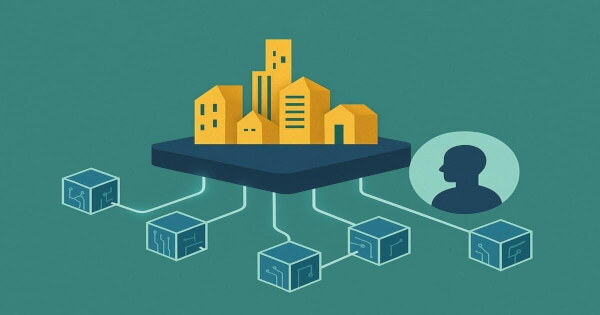Khushi V Rangdhol
Apr 09, 2025 17:50
Liberland, a self-proclaimed blockchain nation, aims for innovative governance but faces challenges like unverified claims, lack of recognition, and economic instability.
A Reality Check on Crypto’s Most Ambitious Governance Experiment
At this year’s Wiki Finance Expo in Hong Kong, Liberland – a self-proclaimed micronation founded on disputed territory between Croatia and Serbia – was a hot topic among crypto enthusiasts. Promoted as a bold experiment in blockchain-powered governance, Liberland aims to reimagine state functions using digital technologies. However, while its vision is undeniably innovative, many of its claims remain unverified and its practical challenges significant.
A Vision Born from Idealism and Blockchain
Liberland was declared in 2015 by Czech activist Vít Jedlička on a tiny parcel of land that had long been overlooked by established nations. Its founders embraced the ideals of minimal government and maximal freedom, using blockchain as a tool to build a transparent, decentralized society. The project has embraced technologies like decentralized autonomous organizations (DAOs), smart contracts, and even NFT-based identity systems to offer its version of citizenship. The promise is compelling: a digital state where every law, transaction, and election is recorded immutably on a public ledger.
Bold Claims Versus Verified Facts
Liberland’s narrative is built on impressive-sounding statistics and technical innovations. Its supporters often mention a vast number of residency applications and record levels of community participation in on-chain voting. However, these figures largely come from internal claims and promotional materials rather than independently verified sources. While the micronation leverages real blockchain platforms—such as Polygon for scalability and Arweave for data storage—there is little external validation of the more detailed metrics, like ultra-high voter turnout or massive application numbers. As a result, observers remain cautious, acknowledging that much of Liberland’s data should be taken as aspirational rather than conclusive evidence of success.
Experimenting with Digital Governance
At its core, Liberland seeks to demonstrate that governance can be made more efficient and transparent through automation. In its blockchain system, token holders are given the power to vote on policies and allocate funds using smart contracts. These digital processes aim to reduce bureaucratic delays and improve transparency. For instance, elections are conducted entirely on-chain, and proposals are executed automatically if they reach the required consensus. While such innovations are groundbreaking, the true test of these systems lies in their scalability and resilience—challenges that remain largely theoretical given Liberland’s current size and influence.
Moreover, Liberland’s economic model is as experimental as its governance. The micronation has chosen to rely heavily on cryptocurrency assets for its treasury, a strategy that exposes it to the notorious volatility of the crypto market. Critics note that while such an approach aligns with the spirit of a digital economy, it raises practical concerns regarding financial stability and the funding of essential public services.
Real-World Challenges and Future Prospects
Despite its technological achievements and creative governance proposals, Liberland faces formidable obstacles. Its claimed territory is not recognized by any United Nations member state, and physical settlement is virtually impossible due to interference from bordering nations. Without international recognition, Liberland’s documents and policies have little legal standing, confining its influence mostly to an enthusiastic online community.
As Liberland continues to refine its blockchain systems and seeks to attract further participation and investment, it remains a fascinating case study at the intersection of technology and statecraft. The discussions at the Wiki Finance Expo in Hong Kong underscored both the potential of blockchain to revolutionize governance and the enduring importance of traditional legal and political frameworks. Liberland’s journey serves as a reminder that while technology can push the boundaries of what’s possible, legitimacy and real-world impact are challenges that no amount of innovation can easily overcome.
Image source: Shutterstock
Credit: Source link





















